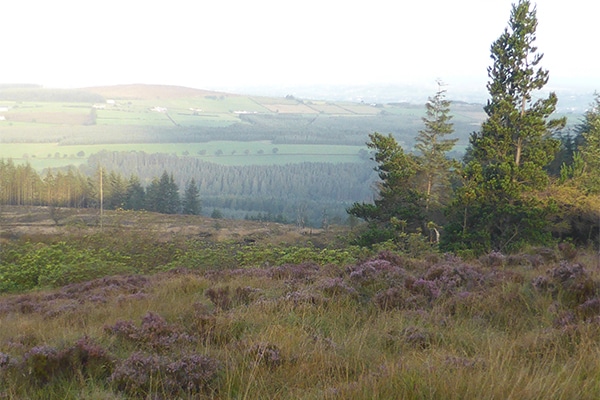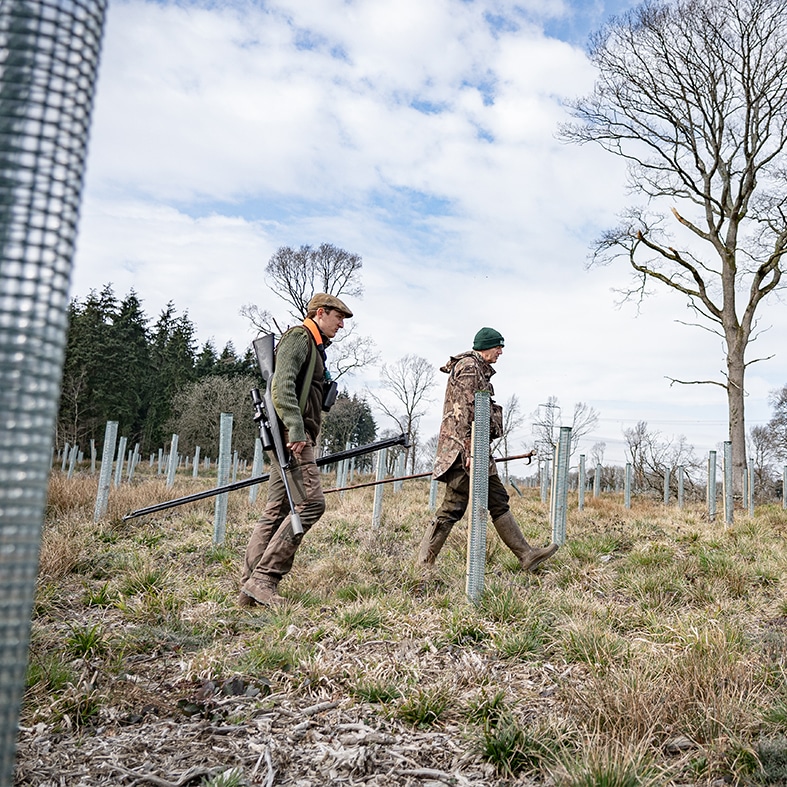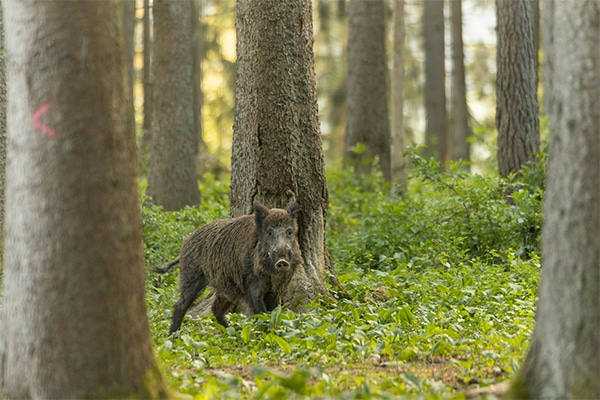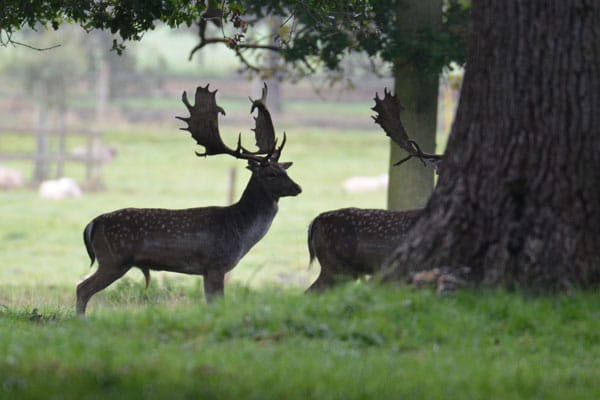
Baronscourt stalking scheme
BASC NI, is working in partnership with the prestigious Baronscourt Estate, to run a stalking scheme exclusive to BASC members.
Get information on the legal shooting season for mammals and birds in the UK.
Learn about our current conservation projects and how you can get involved.
Comprehensive information and advice from our specialist firearms team.
Everything you need to know about shotgun, rifle and airgun ammunition.
Find our up-to-date information, advice and links to government resources.
Everything you need to know on firearms law and licensing.
All the latest news and advice on general licences and how they affect you.


Deer Management Deer management advice How to choose a deer stalking syndicate
One of the best ways to get into deer stalking is to join a syndicate. Many advertise online, or in the shooting press and, like anything in life, some are better than others.
To steer you through this potential minefield, here are some aspects you should check before parting with your hard-earned cash.
Prices for syndicates range from a few hundred pounds right up to several thousand. The cost usually varies based around the number of deer present on the syndicate and the numbers expected to be taken on the syndicate.
Likewise, the species present will have an impact on the price, as will what’s included as part of the deal. A syndicate giving you free reign to stalk at will and cull as many deer as you like and keep the carcasses will cost significantly more than one that offers you four outings a year to sit in a high seat for one deer a time and no meat at the end of it.
It’s worth getting clear on what you’re looking for, how much you’re willing to spend then seeing what’s out there that ticks as many boxes as possible for you.
As mentioned above, there are many different ways that syndicates will operate. Some will happily take your money and leave you to it, others will look to keep a bit more control over things. There’s nothing wrong with either, it’s just about what you’re happy with.
A good syndicate should assess the capabilities of a new member before letting them loose on their own, just to make sure the two key factors of safety and humaneness are observed.
Throughout the duration of your time in a syndicate there should be good levels of communication all around. From reporting and recording sightings and cull data, to finding out who’s out on the ground, it’s always good to have a good working relationship with the other members of the syndicate.
A key to joining a deer syndicate is always to sign a physical contract. Don’t rely on handshakes and gentlemen’s agreements. Always make sure to read the small print, too. Such a contract should spell out your rights as a member and what happens if, for example, the syndicate folds or loses the lease. BASC has a sample template for this, which can be found here.
Most syndicates require members to have at least a DSC1. This is to ensure that the members can properly and legitimately inspect the carcass and gralloch shot deer. Many will want you to hold DSC2 as well to show your competency. Likewise, most, if not all, syndicates will insist on seeing the appropriate level of insurance cover, as well as a relevant and valid firearms certificate.
Other useful qualifications and certificates that might be required would be an appropriate first aid certificate (usually at least the +F element which covers gunshots and other forestry-related scenarios), an ATV certificate and, if in Scotland, a fit and competent certificate. BASC runs several relevant courses.
Always try to go and have a look at the land before joining a deer syndicate. Are there open areas, or is it solid forestry where deer can only be shot crossing a ride? Is it hilly or flat? Any areas that are unsafe for shooting? Look for signs confirming deer are actually there – slots, fraying, dung, etc. Are there high seats/doe boxes? What are the boundaries and is the access relatively easy? All of this will factor into how you stalk and with what success.
Some leases may house several species of deer but specify that only certain species are to be culled. If you join expecting to stalk red stags but can only shoot muntjac for instance, you might end up disappointed!
Are deer actually being shot on the ground? Some syndicates boast about the numbers of deer on their land. But then you discover that members have only shot one each in the whole year, even though they all visit the ground every month. Asking existing and past members their opinions can often prove valuable.
I was a member of a syndicate where I had to book at least two weeks in advance with the leaseholder. This did cause issues when all the days I could go were already booked by others. So, make sure that you know, and are happy with, what you are signing up for.
Can the ground accommodate more than a couple pairs of stalkers? You don’t want to book your stalk only to find there are lots of other stalkers already there and the ground has been disturbed. This is where a good leaseholder/syndicate organiser can be invaluable. They can make sure that stalkers are spread around the lease area safely and effectively.
Do they live locally, and can they attend regularly? Or do they live far away and rarely make the trip?
There can be ‘trophy’ fees for shooting males of a certain size. Some places also charge you the weight of the carcass for each deer taken.
This depends on what you are looking for, too. However, if, for instance, you pay an annual fee to shoot a limit of, say, four deer and take these in one evening, you have lost out on your stalking for the rest of the year. I would always go for a syndicate without a limit.
Before joining a deer syndicate, think about the logistics. If the syndicate is a bit further away, you might need to look for somewhere to stay. Is there a caravan, lodge, bothy, etc.? Or will you have to sleep in the truck? No matter where you decide to stay, make sure you keep the transportation and storage of your rifle, bolt and ammo as safe and secure as possible.
Some may allow you to take a guest perhaps once or twice a year. On the other hand, some won’t allow any guests at all. I always think it’s a bonus to be able to bring others out for a look around.
It’s always a bonus to have the ability to easily extract your deer – especially the larger deer species – as lengthy manual extractions will soon become tiresome!
I always choose a syndicate where I can take the venison home with me, but that’s down to your own preference. Some syndicates keep the carcasses to sell on. To take one yourself, you would need to ask and pay extra for it. Other syndicates will let you keep the carcasses free of charge. Again, check the small print to find out.
Often, stalking syndicates will have access to other forms of shooting such as game days, rough shooting, fox control, pest control, etc. This bit of variety can make the world of difference.
Can the public get on the land? Is there access to a larder to store carcasses? What about tracking dogs – would one be available at short notice when needed? Is the rotation of members substantial? If so, why? This may seem like a lot of questions, but if you do your homework, you can avoid getting stung and join a deer syndicate that suits your needs.
If, at the end of the day, you decide that the answers don’t stack up and the syndicate is not what you’re looking for, don’t be despondent. Keep looking for the right place which can give you satisfactory answers. Don’t feel pressured into joining one just because it is advertising right now and you don’t want to miss out. If it sounds too good to be true, it probably is.
Don’t forget that as a BASC member, you can take advantage of our exclusive members-only stalking schemes which offer great value for money. See the deer pages on our website for more information.

BASC NI, is working in partnership with the prestigious Baronscourt Estate, to run a stalking scheme exclusive to BASC members.

The UK has a growing population of wild boar. and it falls on us to keep populations in check to limit the huge damage.

The DSC2 qualification is not obtained via a course but instead a portfolio of evidence that the candidate will gather together and submit for formal assessment.
Sign up to our weekly newsletter and get all the latest updates straight to your inbox.
© 2023 British Association for Shooting and Conservation. Registered Office: Marford Mill, Rossett, Wrexham, LL12 0HL – Registered Society No: 28488R. BASC is a trading name of the British Association for Shooting and Conservation Limited which is authorised and regulated by the Financial Conduct Authority (FCA) under firm reference number 311937.
If you have any questions or complaints about your BASC membership insurance cover, please email us. More information about resolving complaints can be found on the FCA website or on the EU ODR platform.
This website uses cookies so that we can provide you with the best user experience possible. Cookie information is stored in your browser and performs functions such as recognising you when you return to our website and helping our team to understand which sections of the website you find most interesting and useful.
Strictly Necessary Cookie should be enabled at all times so that we can save your preferences for cookie settings.
If you disable this cookie, we will not be able to save your preferences. This means that every time you visit this website you will need to enable or disable cookies again.
This website uses Google Analytics to collect anonymous information such as the number of visitors to the site, and the most popular pages.
Keeping this cookie enabled helps us to improve our website.
Please enable Strictly Necessary Cookies first so that we can save your preferences!
More information about our Cookie Policy